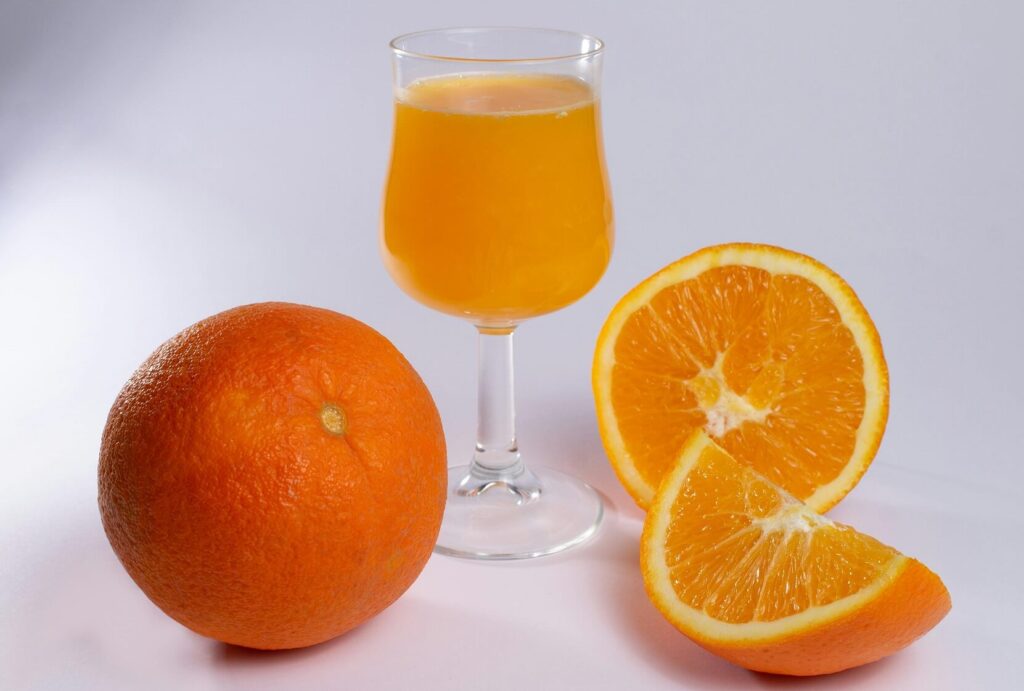It’s hard to eat a diet that’s rich in all nutrients, however these 10 nutritious health supplements for your health. Every diet plan has different levels of vitamin, mineral, and antioxidant requirements for your overall health and wellbeing. In this situation, taking supplements might be the simplest way to maintain your healthy lifestyle and balanced diet.
There are many supplements on the market today, made from both natural and synthetic ingredients that help you meet your growing nutritional needs. They’re available in various forms, including capsules, gummies, tablets, pills, and tonics. In recent times, supplements have become a common way to treat diseases, rather than taking a healthy diet. With so many options available, it can be difficult to decide which ones are right for you and which ones aren’t. It’s best to pick the right supplement for your health goals.
Supplements are available in many forms, including those listed below:
- Supplements for bone health
- Supplements for mood
- Supplements for digestion
- Supplements for athletic performance.
Supplements have both positive and negative effects. A bad supplement can do more harm than good. On the other hand, a good supplement can significantly improve your health. If you plan to incorporate supplements into your diet, you should talk to your doctor to make sure the supplement is safe for you and what your health needs are.
Here is a list of the top 10 nutritious health supplements for your health that most people can take to improve their health. This is a basic guide.
Top 10 nutritious health supplements for your health:
1. Vitamin C
Vitamin C is water soluble and cannot be made by the body. You can find vitamin C in most fruits and vegetables. Its content can be reduced by cooking and storage. Vitamin C helps prevent cell damage, fights disease, lowers cholesterol, blood pressure, improves iron absorption, supports blood flow, boosts immune function, reduces the risk of cancer, cardiovascular disease, common cold, cataracts, etc. Vitamin C is needed for the growth of collagen and connective tissues. Vitamin C protects against free radicals. The best way to get vitamin C is by taking dietary supplements. Otherwise, your body won’t have enough.

How much to take:
Doses of Vitamin C supplement may vary from product to product. Naturally-sourced vitamin C supplements is also available in market. It is recommended to take daily (in the morning & evening) to keep your immune system strong to fight bacteria.
Pros:
- Available in different forms, like capsule, tablets, gummies & organic.
- Lowers cholesterol, reduces blood pressure, boost immune function, and help fight free radical damage.
- Free of gluten, dairy, non-GMO, vegan.
Cons:
- High doses may cause mild stomach symptoms, like diarrhea and nausea.
- May cause heartburn, fatigue and sleepiness, and more.
Why you like it:
If you have deficiency of Vitamin C, supplements are essential to the body. Since, your body does not store vitamin C, however you need to have vitamin c rich diet daily, otherwise you need to have supplement to meet the requirement to the body.
2. Vitamin D
Vitamin D is a nutrient that helps maintain your body’s health and fitness. It is thought to only help with bone development, but studies have shown that even a little vitamin D can make a big difference in the overall health of your growing body. Vitamin D is fat soluble and plays an important role in the health of your bones, immune system, and cells. If you don’t get enough vitamin D, your body won’t be able to absorb calcium, and your bones won’t grow properly. When vitamin D isn’t enough, your bones become soft and malformed, and you may develop diseases. Vitamin D helps to maintain your immune system.
People who are at risk for vitamin D deficiency include: Infants who don’t receive enough vitamin D from their breast milk, People exposed to less sunlight, Older adults with dark skin or obesity, People with malabsorption or deficiency.

How much to take:
Doses of Vitamin D supplement may vary from different products. Organic sourced vitamin D supplements is also available in market. Daily doses of vitamin D supplement in the morning is very useful. Take your doctor advice to get an accurate vitamin D supplementation requirement to your body.
Pros:
- Available in different forms, like tablets, softgels, liquid, chewable tablet.
- Promote and support bone and joint health.
- Helps boost immunity and Supports healthy cardiovascular health.
- Free of gluten, dairy, non-GMO, vegan.
Cons:
- High doses may cause Anxiety, Joint pain, Fatigue or tiredness, Bone pain, and more.
- Muscle pain, Low energy, frequent illness.
Why you like it:
It is recommended that consuming supplement vitamin D is a safe and effective way to boost out vitamin D serum levels. In case of noticing deficiency of vitamin D, this can be consumed by taking supplements, which is best option.
3. Fish oil / Omega-3 fatty acids
One of the most important nutrients for good health is Omega-3. It plays a vital role in preventing cancer, supporting heart health, supporting the eyes, brain, cardiovascular, respiratory, immune system, muscle, joint and body weight health, reducing inflammation, supporting mental health conditions like anxiety, dementia and depression, regulating blood pressure, supporting a positive mood and more.
To get the maximum amount of Omega-3 in your diet, you need to consume oily fish such as salmon, anchovies or sardines. You can also add mackerel and nuts to your diet. You may need to supplement your daily intake of Omega-3 to make sure you are getting the minimum amount you need. You can get omega-3s naturally in your diet, but you can also get them from fish oil supplements that contain Omega-3 fatty acids.
These fatty acids play a key role in improving your metabolism, increasing nutrient absorption, fighting inflammation and reducing the risk of high blood pressure. They can also help improve joint health by improving array of motion and reducing morning stiffness.

How much to take:
Omega-3 fatty acids Supplements should be taken at specific doses that vary from individual to individual product. Taking a daily dose of fish oil is one of the easiest thing you can protect your healthy heart.
Pros:
- Available in plant based, fish oil and other seafood capsules.
- Support the health of the heart, eyes, and brain.
- Good for proper cardiovascular, respiratory, immune.
Cons:
- May cause mild stomach upset, diarrhea.
- High amount of dose may cause low blood pressure, stroke and many more.
Why you like it:
Mainly three types of omega 3 available in the market, ALA (alpha-linilenic) – mainly in plant oil, EPA (eicosapentaenoic acid) and DHA (docosahexaenoic acid) – found in fish & other seafood. For vegetarians, vegan omega 3 capsule also available in the market.
4. Multivitamin
If you want to improve your nutrition and boost your overall health, taking a multivitamin is a great way to do it. In today’s world, many of the nutrients you need are missing in your daily diet. Even the healthiest person might not get all of the nutrients they need, or not be able to eat a healthy diet. A supplement like a multivitamin can help make up for these nutritional deficiencies. Taking a multivitamin every day can help you get the proper amount of nutrients your body needs to function properly.
Multivitamins play an important role in boosting your immune system, boosting your energy levels, reducing the risk of diseases, improving performance, and boosting your overall health. Each multivitamin is made up of a combination of vitamin A, vitamin C, vitamin E, magnesium, and calcium. It is also free from artificial sweeteners, iron, etc.
How much to take:
The doses of Multivitamins supplements may vary from various products. The essential micronutrients for adults can often be found in most multivitamins supplements. Mostly all products are multipurpose and can be used by men or women of any age, and this can be taken any time of day and is gentle enough to be taken on an empty stomach.
Take proper advice from your doctor about taking a multivitamin supplements may make sense for you.
Pros:
- Available in different forms, like capsule, tablets, powders, gummies.
- Help to reduce the risk of diseases, increase performance, and boosts energy.
- Free of gluten, dairy, and soy.
Cons:
- High doses may cause mild stomach upset, sever liver & heart problems, and more.
Why you like it:
Multivitamins supplements are available in market for men, women and kids. They are enriched with herbs, 9 essential amino acids along with vitamins and minerals. Moreover, they may help in energizing the body and improve stamina.
5. Probiotics:
A probiotic is an active supplement that contains live bacteria that can enhance your gut ecosystem and enhance everything from skin health to immune function. Your gut is rich in good bacteria, and your gut is rich in bad bacteria. Bad bacteria can weaken the gut lining and increase the risk of diabetes. Good bacteria can strengthen the gut lining and keep your blood stream from becoming inflamed. Good bacteria support the immune system and improve overall health. Probiotics can help you control your weight and BMI.
By adding more probiotic to your diet, you can reduce diarrhea, gas and bloating. You can also counteract some of the adverse effects of common medications such as antibiotics. This makes probiotics one of the most essential supplements for treating autoimmune disease and keeping your gut healthy. Take probiotics to get an extra boost of your overall health.

How much to take:
Supplements should be taken at specific doses that may vary from individual products. While traveling to avoid any digestive issues, it is recommended take one capsule twice daily.
Pros:
- Available in capsules, tablets, vegan capsules and chewable gummies.
- Improve gut health, immune system, digestion.
- Vegan, gluten-free, and soy-free.
Cons:
- Too much dose may have allergic reactions.
- Can cause mild stomach upset, diarrhea or bloating.
Why you like it:
There are a lot of options out there for an effective, and affordable probiotic in the market. Like easy-to-swallow, once-daily capsule, which also contain inulin, a prebiotic that acts as food for the healthy bacteria. Kids also have probiotic gummies in the market.
6. Magnesium
Magnesium is one of the most important minerals in the human body. It plays an important role in the transmission of nerve signals, the regulation of muscle contraction, and the control of blood glucose levels, the production of proteins, the production of bone and cells, and the absorption of nutrients such as calcium. It is the ultimate mineral for relaxation. It keeps the body and brain at rest. It is found in all tissues. The cells in the bones, muscles, and brain need magnesium to function properly. All of these cells require magnesium to produce their own energy.
Lack of magnesium can cause chronic fatigue. Lack of magnesium can also increase the frequency and intensity of migraine headaches. Magnesium is also essential for bone health, heart health, and normal digestion. It regulates DNA and RNA. It plays an essential role in the immune system.
Despite this, magnesium can still be found in most foods, including grains, beans, and nuts. However, due to soil degradation and poor agricultural practices, it is difficult to get enough magnesium from food alone. Approximately 80% of adults are said to be deficient in magnesium. Now, magnesium deficiency is a serious issue, which is why everyone should take magnesium supplements.
How much to take:
Magnesium supplement doses may vary from individual products. Magnesium supplements available in: citrate form – safe for improving digestion and reducing constipation, Glycinate form – highly absorbable and Chelate – easy for the body to absorb and found naturally in foods. Organic plant based Magnesium supplements is also available in market. Magnesium isn’t stored in the blood. Therefore, it’s best to start with small doses.
Pros:
- Available in different forms, like tablets, capsule, vegetable capsule, powder.
- Help in nerve transmission, muscle contraction, energy production, and bone and cell production.
- Helps to keep your body and brain relaxed.
- Free of gluten, eggs, peanuts, soy, dairy, and shellfish.
- Free of hydrogenated fat, artificial colors and sweeteners.
Cons:
- High doses may cause weakening bone, irritability and Anxiety.
- Muscle cramps and twitches.
Why you like it:
Daily dose of magnesium in the flavored packets are highly-absorbable, and make it easier to get your stomach. You can also drink powder tastes which is good.
7. Zinc
Zinc is an essential mineral that supports the immune system, boosts energy levels, and improves mood. It accelerates wound healing, improves brain function, treats acne, and increases immunity. It also reduces the duration of common cold. Zinc is used daily for preventing colds and improving digestion. It has significant therapeutic benefits for curing cancer and heart disease. It is an important anti-inflammatory mineral for people suffering from autoimmune diseases. It also helps to slow the ageing process and supports hormonal production. Men with low zinc levels may be prone to diabetes and infertility.
How much to take:
Doses of zinc supplement depend upon the products direction. It can be hard to acquire a meaningful amount of zinc from food, and your body doesn’t store it. It mean that you need to fill minimum needs each day by taking supplement. Therefore, daily dose of zinc supplement is very beneficial. It is important to follow dosage guidelines, to avoid overdoses.
Pros:
- Available in different forms, like tablet, vegetable capsules, and lozenges.
- Available as zinc citrate, chelated, picolinate, gluconate.
- Helps to healthy immune function, energy production, speed up the healing of wounds, improving brain function.
- Free of gluten, and dairy.
Cons:
- High doses may increase the risk of diabetes and infertility.
Why you like it:
You can have daily dose of zinc supplement in different forms, generally these tablet consumed with water. For vegan people, can have vegetable capsule. You can have Zinc supplements with blend of other supplement like magnesium, biotin, calcium, vitamin C and many more in the market for additional health benefits.
8. B Vitamins / Folate
B vitamins like folate, folic acid, and vitamin B12 are important in the health of both men and women. B12 helps in DNA production, red blood cell production, and white blood cell production. It also helps in blood circulation in the body which helps in controlling blood pressure and lowers the risk of heart disease. B vitamins are needed for energy production, metabolism, fatigue and brain function. B vitamins may also play a big role in depression.
Vegetarians or vegans are more likely to be deficient in vitamin B12 as it is found only in animal-based food. Therefore, taking B vitamins supplements may not be sufficient to meet the need of B vitamins as they may not convert other nutrients to B vitamins. A vitamin B deficiency can affect most functions of the body, including liver, nerves, and eyes.
How much to take:
Doses of B vitamin supplement varies from the type of product and their instructions to use. It is recommended to take supplement on daily basis preferably with a meal. It is important to follow dosage guidelines, to avoid overdoses.
Pros:
- Available in form capsule, tablet, vegetable capsule, nuggets.
- Helps to build DNA production, formation of red blood cells and white blood cells in the bone marrow, energy production.
- Free of gluten, dairy, and vegan.
Cons:
- Lack of vitamin B may have problems in liver, nerves, skin, and eyes, and turning other nutrients into energy.
Why you like it:
B vitamin available in various form, and can be taken as per your convenient. Since the needs of adequate amount of B vitamin cannot be fulfill by foods, however supplement is very much essential to balance the vitamin.
9. Proteins
Proteins are the building blocks of the human body and are necessary for its growth and maintenance. They can be found in a variety of foods, such as oats, oatmeal, milk and cottage cheese. Protein is made up of amino acids that attach to each other via peptide bonds, similar to beads. These strings then twist and fold into the shape of protein.
Protein is divided into 20 different types, including non-essential, conditionally essential, and essential proteins. It is important to get the proteins you need from your diet, as the proteins you consume break down and reformulate into new proteins in your body that help fight infections and divide cells. Your protein needs will depend on your life cycle and your health status, and if your protein needs change as your body’s protein levels increase or decrease, health conditions may be at risk.

How much to take:
Protein-containing supplements, are in powder form and ready-to-drink or as powders to be mixed into water. Intake of doses vary from person to person, as the product guidelines. It is important to follow dosage guidelines, to avoid overdoses.
Pros:
- Available in form capsule, vegetable capsule.
- Powder form available in a variety, like unflavored, and flavored – blueberry smoothie, Ghana chocolate, lemon lime and many more.
- Protein available in form whey, casein and soy.
- Helps to build building blocks of organs, skin, muscles and hormones, required for healthy body.
- Free of gluten.
Cons:
- Lack of protein may have Problems in skin, nails, Liver damage, Bones fractures, and Sleep deprivation.
- Excess protein may have problem like, Decreased appetite, Fatigue or tiredness, Foamy urine Bad breath and bad body odor, Constipation, Dehydration, Weight gain.
Why you like it:
People hopeful to lose weight while minimizing muscle loss, or people who want to increase muscle size for performance and appearance, protein powder (whey, casein, pea protein, or more) is a popular ingredient.
10. Fiber
Fiber is a nutrient found in foods like fruits, vegetables and whole grains, and it is essential for good health. If you are unable to eat certain foods or have digestion issues, a fiber supplement may be a good option for you.
Fiber is found in two main forms: soluble fiber and insoluble dietary fiber. Both are needed for normal bowel movements, cholesterol levels, blood sugar control, and weight management. Most dietary fiber supplements contain either soluble fiber or insoluble dietary fiber, leaving your digestive system intact.
How much to take:
Doses of fiber should be in accordance with the products instructions. The powder mixes easily with juice or water and can help to improve constipation. Fiber can be taken in capsule form as well. Always follow dosage guidelines, to avoid overdoses.
Pros:
- Available in form capsule, powder, tablet, isabgol.
- Helps to manage bowel movements, reduce cholesterol levels, manage blood sugar and weight.
- Free of gluten, dairy, and soy.
Cons:
- Lower blood sugar, gas pain, diarrhea, constipation.
Why you like it:
Fiber supplement can be taken as per your convenient form. People who are not habitual to take healthy diet, they can use fiber supplement to manage their fiber needs. Fiber is available in Isabgol and sachets form for better use.
A word about nutrition & supplements:
It is important to remember that no supplement is going to be able to completely replace your lack of nutrition. A healthy diet is the basis for building your body’s strength and health. Supplements are designed to supplement the nutrition of your healthy diet, not replace it. Supplements are always better if you need a specific amount of certain vitamins and minerals. However, supplements can be harmful if you take too many.
Some tips for taking dietary supplements:
Some people may not be getting enough of certain nutrients in their daily diet, so they need to take supplements along with their regular diet. The following tips may be beneficial when taking supplements:
- Always take the recommended dosage as printed on the label.
- Make sure your supplement follows the instructions on the label and how it might interact with your medications or foods.
- Read the labels carefully.
- Supplements cannot promise to cure diseases, but they must have appropriate ingredient and nutrition labels.
- Vitamins and minerals can be added to your diet as supplements, but never as a replacement for real food.
- Always put your medicines or supplements back in their proper place after use to avoid any accidents.
Conclusion:
With the right nutrition plan, recovery plan, and supplement strategy, you can make a difference in your appearance, health, and performance. However, it is important to remember that supplements are not a substitute for a balanced diet. Eating a wide variety of healthy foods, such as fruits and vegetables, whole grains, protein, and fats in small amounts is the best way to maintain your overall health and wellbeing. Supplements may be beneficial if your body truly needs them, or as advised by your doctor.
Reference used:
- https://www.webmd.com/food-recipes/protein
- https://www.healthline.com/nutrition/protein-for-vegans-vegetarians#TOC_TITLE_HDR_18
- https://www.bulletproof.com/supplements/dietary-supplements/optimize-your-supplements/
- https://en.wikipedia.org/wiki/Bodybuilding_supplement
- https://www.rollingstone.com/product-recommendations/lifestyle/best-meal-delivery-service-kits-970863/





